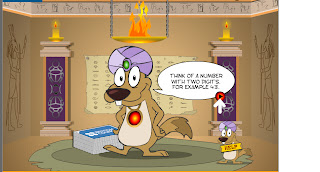The only way to
learn a new programming language is by writing programs in it. The first
program to write is the same for all languages:
Print the words:hello, world
In C, the program to print ``hello, world'' is
#include
main()
{
printf("hello, world\n");
}
Just how to run this program depends on the system you are using.
complie the program click the alt+F9.and dispaly errors and warning.errors and warnings must be zero and next run the program click ctrl+F9 to display the output
As a specific example, on the UNIX operating system you must create the program in a file whose name ends in ``.c'', such as hello.c, then compile it with
the command
cc hello.c
If you haven't botched anything, such as omitting a character or misspelling something, the compilation will
proceed silently, and make an executable file called a.out. If you run a.out by typing the command
a.out
it will print
hello, world
ANOTHER EXAMPLE:
Print the words:hello, world
In C, the program to print ``hello, world'' is
#include
main()
{
printf("hello, world\n");
}
Just how to run this program depends on the system you are using.
complie the program click the alt+F9.and dispaly errors and warning.errors and warnings must be zero and next run the program click ctrl+F9 to display the output
As a specific example, on the UNIX operating system you must create the program in a file whose name ends in ``.c'', such as hello.c, then compile it with
the command
cc hello.c
If you haven't botched anything, such as omitting a character or misspelling something, the compilation will
proceed silently, and make an executable file called a.out. If you run a.out by typing the command
a.out
it will print
hello, world
ANOTHER EXAMPLE:
An example of simple program in C
#include
int main(void)
{
printf(“HAI
HOW ARE YOU\n”);
printf(“FINE
”);
printf(“you
know the trick\n”);
return(0);
}
The previous program will produce the following
output on your screen
HAI
HOW ARE YOU
FINE you know the trick
a C program line begins with # provides an
instruction to the C preprocessor
It is executed before the actual compilation is
done.
Two most common directives :
#include
#define
In our example (#include) identifies
the header file for standard input and output needed by the printf().
Identify the start of the program
Every
C program has a main ( )
'main' is a C keyword. We must not use it for any other variable
Identify a segment / body of a program
The start and end of a function
The start and end of the selection or repetition
block.
Since the opening brace indicates the start of a
segment with the closing brace indicating the end of a segment, there must be
just as many opening braces as closing braces
(this is a common mistake of beginners)
Each
statement in C needs to be terminated with semicolon (;)
Each
statement in C needs to be terminated with semicolon (;)











